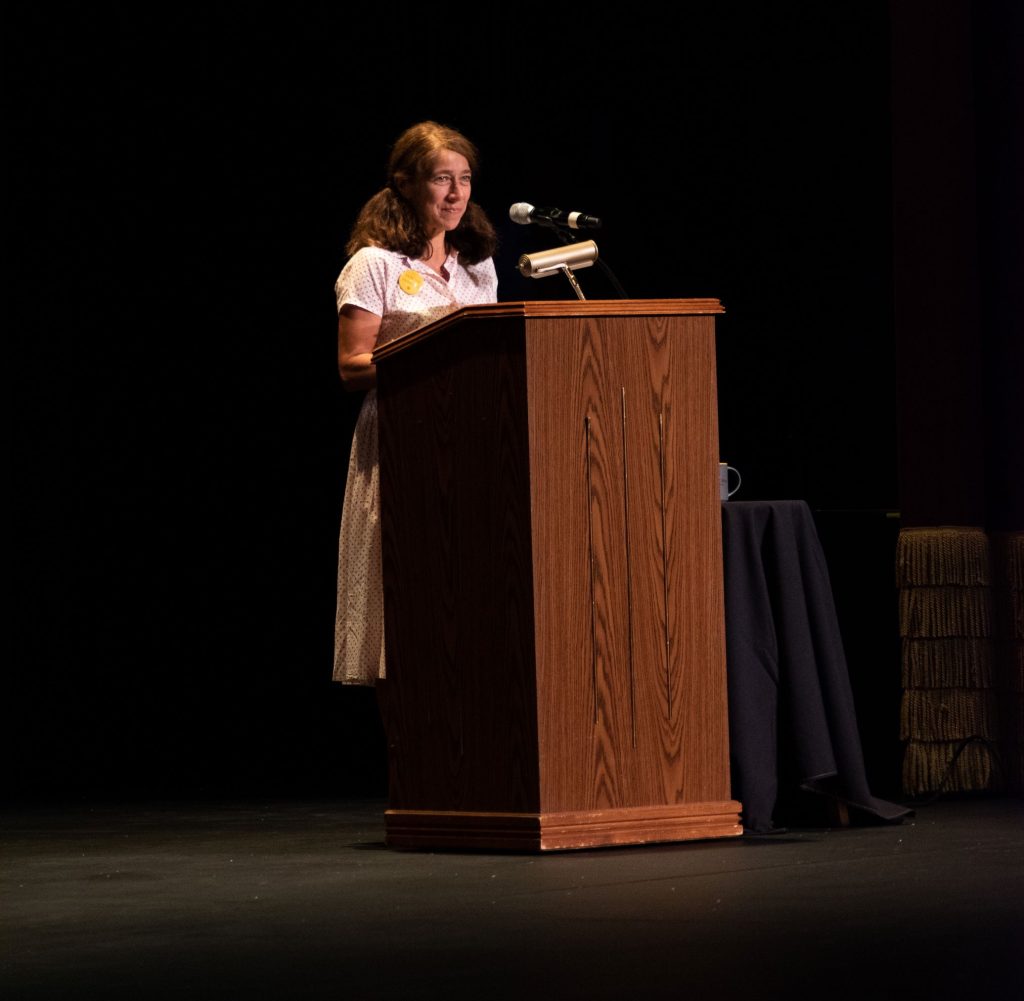Published on Feb. 17, 2023

As a part of the annual Honors One Read event, freshman Honors College students studied and celebrated Mill Town, a book by Kerri Arsenault.
Mill Town is an exploration of Arsenault’s family history, the history of the eponymous Mill Town, and environmental investigative reporting. The town was home to a paper mill, which wreaked havoc on the workers, residents, and surrounding environment of the town. The book has won several awards, including the 2021 Rachel Carson Environmental Book Award.
At the end of their time with the book, students were able to attend the Honors One Read Symposium hosted by the College, attended by Kerri Arsenault herself. Students were treated to a discussion of the book by the author and asked Arsenault questions.

Brianna Iordan, second-place winner of the One Read essay contest, enjoyed the Symposium.
“To get to meet the author of the book was a great experience,” Iordan said. “It was really cool to interact with her and see the things she did and the decisions she made.”
Students were also able to take an honors class on the book.
“The discussions we do every week is really impactful. We’re discussing real environmental issues people don’t talk about every day,” Iordan said. “We take for granted that you can’t just ignore these issues, it’s important to spread the word about them.”
For Iordan, Mill Town hit close to home.
“I grew up going to Chicago and visiting the city a lot. [The book] brought up the theme of not seeing the issues and knowing the pollution and toxins were lurking under the surface,” Iordan said. “I moved as a kid, so I related to how a landscape can impact a person. I related that in my essay – the importance of places around you and how they make you who you are.”
Kerri Arsenault wants to help academics learn how to write better environmental stories. Mill Town, a book that is in part an investigative memoir, environmental investigation, and a cultural criticism, is one project of many.
“I started The Environmental Storytelling Studio at Brown University, teaching academics how to tell better environmental stories,” Arsenault said. “I’m also working on two projects, examining the idea of environmental storytelling through Rachel Carson, and evaluating environmental writing to see if stories can do anything to make policy changes.”
For her part of the One Read Symposium, Arsenault gave a 40-minute talk about storytelling, the working class, the story of Maine – in her words, “It was a lot!”
“The engagement from the students was incredible,” Arsenault said. “I was warned before that students would be able to have questions, and maybe the students would be a little shy at first, but they lined up on both sides of the aisles! It was really a very moving event to see them so engaged with the things and concerns in the book.”
One student question sticks out in Arsenault’s mind.
“One student got up and asked, ‘I hate to say this, but your book’s on paper, what do you have to say about that?’ I had everybody open their books to page one.” Arsenault said.
The first page of Arsenault’s book informs the reader the book is printed on environmentally friendly paper.
“I found the students to be so curious and smart, and the faculty and the staff I worked with to be incomparable, they were so great,” Arsenault said.

For aspiring student writers, Arsenault advises they “follow their curiosity.”
Arsenault will return to Missouri in April 2023 for the Unbound Book Festival.